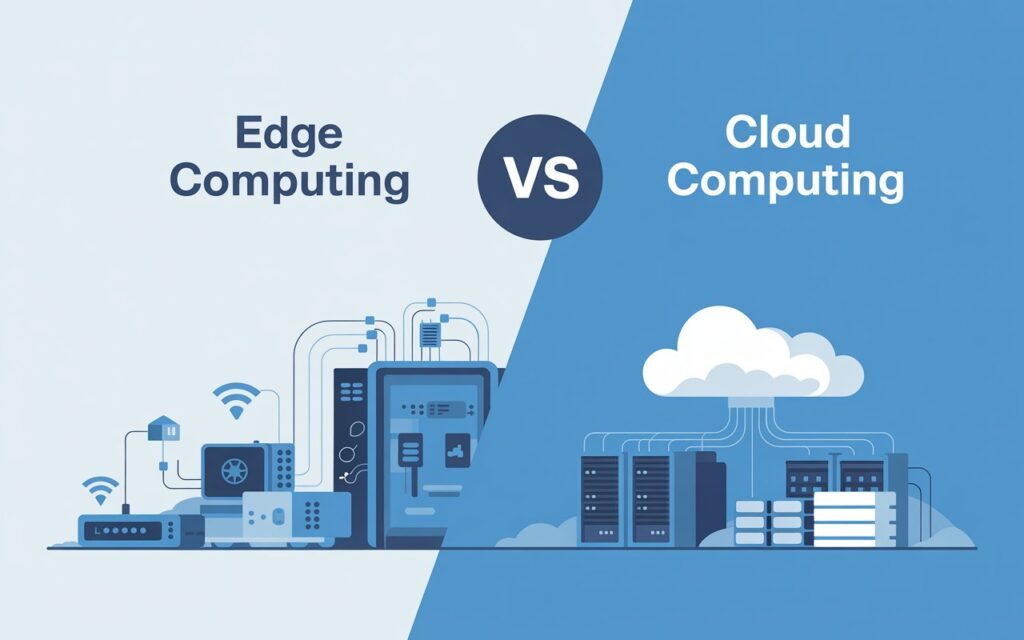Why Choose Azure Cloud Computing for Your Business?
Introduction to Cloud Computing
What is Cloud Computing?
Cloud computing is an expression used to refer to delivery of computing services over the internet whereby users are able to access data and applications as well as store them remotely. It is significantly less expensive and more scalable in comparison to the conventional on-premises approach to the infrastructure. There are three main types of cloud services, including Infrastructure as a Service (IaaS), Platform as a Service (PaaS) and Software as service (SaaS). The enterprises can choose between the public, private or hybrid models of cloud based on its specific needs.
Types of Cloud Services:
- IaaS (Infrastructure as a Service). With IaaS, the cloud resource provider provides virtualized resources of information technology on the internet. The clients can rent the servers and storage and in this way gain flexibility and extension.
- Platform as a service (PaaS). PaaS provides a platform where programmers can develop, deploy and manage programs without worrying about the platform.
- Software as a Service, SaaS. SaaS is subscription-based delivery of software applications over the net which do not require any installation and maintenance.
Overview of Public, Private, and Hybrid Clouds:
- Public Cloud. The services are provided across the general internet and shared by several organizations. Examples of the commonest are Microsoft Azure and Amazon Web Services (AWS).
- Private Cloud. Services are operated on a rather closed network, which offers better security and control, and appeals to the needs of businesses which have many high compliance requirements.
- Hybrid Cloud. Hybrid cloud integrates the features of both the public and the private cloud so that both the data and the application should be shared between the two clouds enabling a higher level of flexibility and deployment capabilities.

Azure Cloud Computing vs AWS: A Comprehensive Comparison
Both Azure and AWS provide extensive cloud services, but address the differing needs currently present in the market. Azure is often beneficial to business simply because organizations have already invested so much in Microsoft products, in particular windows server, SQL server, or other Microsoft applications.
- Pricing: Azure provides more flexible pricing especially to those organizations that already possess Microsoft licenses. AWS is a very powerful tool that sometimes is linked with unexpected costs due to its complicated billing scheme.
- Simple to use: The graphical interface of the Azure is widely considered easier to use, particularly to those who are familiar with other Microsoft products. AWS on the other hand might have a higher learning curve to newcomers.
- Service Offerings: The two providers offer an extensive list of services, but Azure excels in machine learning and analytics services, and AWS presents a more comprehensive list in general.
Security and Compliance
Azure's Security Features
- Overview of Built-in Security Measures: Azure employs a multi-layered security approach, including physical security at data centers, network security, and application security.
- Data Encryption and Protection Protocols: The information is encrypted and also in transportation; the sensitive information is guarded against access of anybody other than the authorized personnel.
- Identity and Access Management Solutions: Microsoft Azure Active Directory allows the management of user identities and exclusive access to resources using multi-factor authentication and policy-based access controls on enterprises.
Risk Management
Strict analysis of the risk of cloud computing is unavoidable in order to maintain safety.
- Risks in Cloud computing: Risks include risks to data breach, loss of data controls and risks of non-compliance. The management of these risks is all about recognizing them.
- Risk Assessment and Management at Azure: Azure provides the instruments and services to assess the security position and manage the risks, specifically Azure Policy and Azure Security Center.
- Best Practices in Ensuring Secure Environment in the Cloud: To ensure that the situation is controlled, organizations ought to undertake regular updates of security measures as well as audits and train staff on best security practices.
Effective Migration Strategies to Azure Cloud
Migration to Azure might seem a daunting task at first; however, by engaging in proper planning the process can be carried out with an acceptable degree of natural ease. The suggested next step is to perform the critical assessment of current infrastructure and applications to determine what can be directly relocated and what has to be re-designed. After such an analysis, a comprehensive migration plan should be developed, with included deadlines and resources as well as responsibilities. After doing all the preparation work, it is advisable to consider depending on the dedicated migration aids that are provided by Azure, especially the Azure Migrate. Last but not least, the post-transition rigorous testing of the applications is necessary so that the functionality of the applications is reaffirmed.

Real-World Case Studies of Azure Cloud Computing
Many businesses have successfully transitioned to Azure, reaping the benefits of cloud computing.
Case Study 1: A retail company migrated its e-commerce platform to Azure, resulting in improved performance and reduced downtime during peak shopping seasons.
Case Study 2: A healthcare provider utilized Azure to store patient data securely, ensuring compliance with regulations while enhancing data accessibility for healthcare professionals.
Key Benefits of Using Azure Cloud Computing
- Scalability: The platform supports quick increase and decrease of resources based on the necessity that allows you to pay only the amount of resources that are used.
- Cost-Effective: Azure removes capital expenses associated with purchase of physical hardware and its maintenance.
- Integration: Azure is compatible with all the other available Microsoft products and services, thereby making it more productive.
- Globalization: azure has data centres all around the world and so they can deploy their applications close to the users and therefore have better performance.
Best Practices for Azure Cloud Computing Management
The following are the best practices that must be followed by practitioners to ensure the practitioners get the maximum out of Azure:
- Regular Monitoring: Use Azure Monitor to monitor performance and health metrics endlessly.
- Cost Management: Use the Azure Cost Management tools to precisely follow the spending and make the best use of the resources.
- Security Audits: It should routinely perform security audits to identify the weakness and take remedial measures.
Future Trends in Azure Cloud Computing
As technology evolves, so does Azure. Some future trends to watch include:
- Enhanced AI: More artificial-intelligence features are likely to be added to Azure whereby the organizations will be able to utilize machine learning as well as data analytics more efficiently.
- Improved Security Capabilities: The enhanced security features are expected to be implemented as the threat of cyberattacks is increasing.
- Sustainability Initiative: Azure is determined to be sustainable and intends to be carbon negative by 2030, which makes the company an appealing alternative to environmentally aware organizations.
Conclusion
Benefits of Working With SK Technology
- Trusted Microsoft Security Partner
- Local Dubai-Based Support
- Complete IT & Network Solutions
- Boosted Security and Productivity
- Fast Response Times


